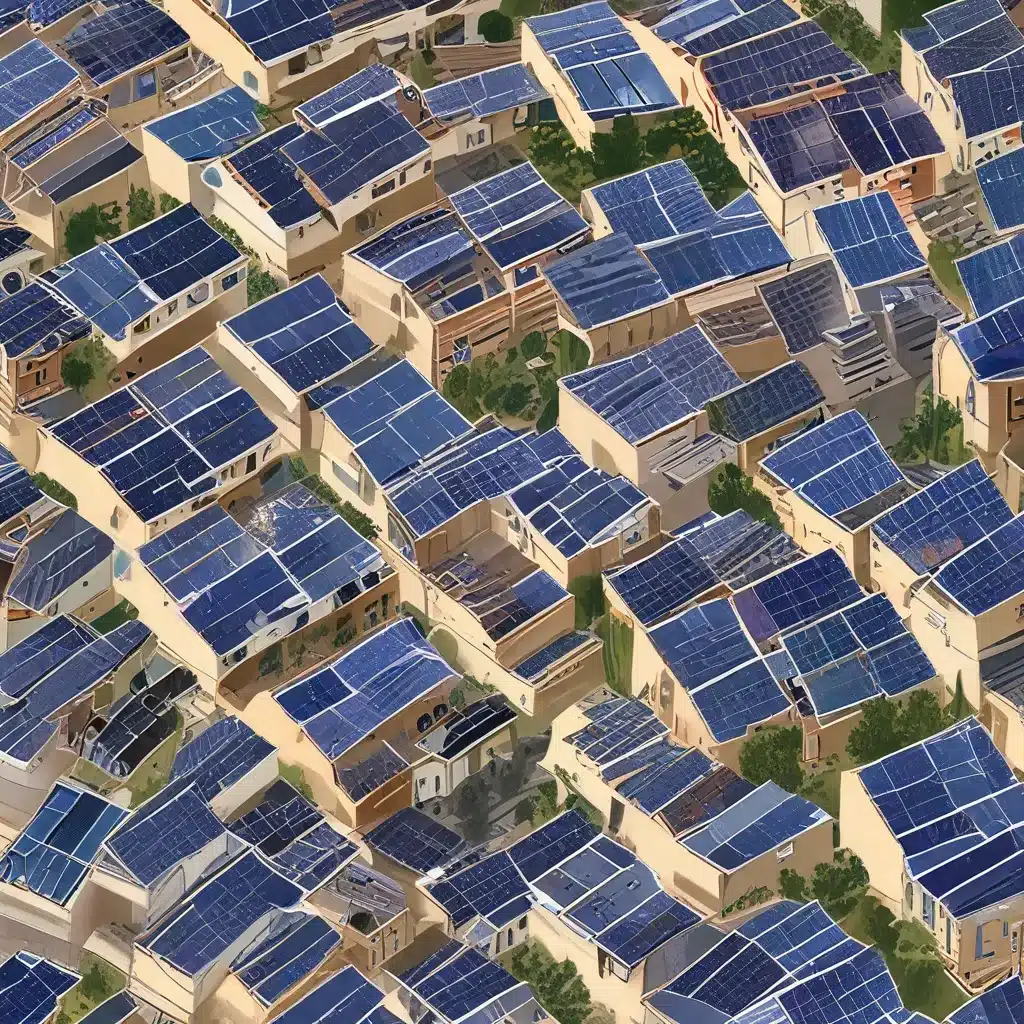
Navigating the Zoning Maze: A Solar Enthusiast’s Guide
As a solar energy enthusiast, I’ve been on a mission to harness the power of the sun and reduce my carbon footprint. But let me tell you, navigating the world of zoning laws has been a real adventure – one that’s full of surprises, frustrations, and the occasional moment of pure joy.
You see, I had this grand vision of transforming my humble abode into a solar-powered oasis, with sleek panels adorning my rooftop and my electricity bills dwindling to a mere fraction of their former selves. But as I soon discovered, the path to solar enlightenment is paved with, well, a lot of paperwork and a maze of regulations.
Unraveling the Zoning Conundrum
Before I could even think about installing those shiny solar panels, I had to dive headfirst into the world of zoning laws. And let me tell you, it’s a veritable rabbit hole of complexities. Each community, it seems, has its own unique set of zoning regulations, and it’s crucial to understand which zone your property falls under.
According to Millman National Land Services, the most common zoning categories include residential, industrial, commercial, and agricultural. And let me tell you, each one has its own set of quirks and restrictions that can make your solar dreams seem more like a mirage.
For example, in some residential zones, you might not even be allowed to have a home-based business, let alone install a solar array. And don’t even get me started on the rules around the number and types of animals you can have on your property – apparently, farm animals are a no-go in many neighborhoods.
The Importance of a Zoning Report
As I delved deeper into the zoning rabbit hole, I quickly realized that the key to navigating this labyrinth was to obtain a comprehensive zoning report for my property. This document would tell me exactly what I could and couldn’t do with my land, and it would be the guiding light in my solar quest.
According to the Nashville Codes Department, there are four main types of land use zoning: functional, form-based, intensity, and incentive. Each one has its own set of rules and regulations, and understanding which one applies to your property is crucial.
For example, if your property falls under a form-based zoning category, you might be subject to strict aesthetic requirements, like the type of materials you can use on your home or the height of your solar panels. And in an intensity zoning area, you might be limited by the number of residential or commercial units you can have on your property.
Navigating Historic and Aesthetic Zones
As if the zoning maze wasn’t complicated enough, I soon discovered that some areas have even more specific regulations, like historic and aesthetic zoning. And let me tell you, these can be a real game-changer when it comes to installing solar panels.
According to the Nashville Codes Department, historic zones are designed to preserve the original structures and character of a neighborhood, and they can severely limit the changes you can make to your property. In some cases, even the installation of solar panels might be off-limits, unless you can prove that they won’t compromise the historic integrity of your home.
And then there’s the whole world of aesthetic zoning, which is prevalent in many upscale communities. These zoning codes can dictate everything from the color of your roof to the placement of your solar panels, and they often require an architectural review committee to approve any changes.
The Solar-Friendly Solution: https://solarasystemsinc.com
Now, you might be wondering, “Is there any hope for a solar-powered future in this zoning minefield?” The answer is a resounding yes, and that’s where Solar A Systems Inc. comes in.
As a leading solar energy solutions provider, Solar A Systems Inc. has navigated the zoning labyrinth countless times, and they’ve developed a deep understanding of the various regulations and requirements in different communities. They work closely with local authorities to ensure that their solar installations not only meet all the necessary zoning requirements but also seamlessly integrate with the unique character of each neighborhood.
Whether your property is in a residential, commercial, or agricultural zone, or even if it’s located in a historic or aesthetic district, the team at Solar A Systems Inc. can help you overcome the zoning hurdles and make your solar dreams a reality. They’ll guide you through the process, handle all the paperwork, and ensure that your solar installation is a work of art that complements the architectural and historical elements of your property.
Embracing the Solar Revolution, One Rooftop at a Time
As I look back on my solar journey, I can’t help but chuckle at the zoning twists and turns I’ve encountered. It’s been a rollercoaster ride, to say the least, but with the help of Solar A Systems Inc., I’ve been able to navigate the maze and emerge victorious, with a beautiful rooftop solar array that’s powering my home and reducing my carbon footprint.
So, if you’re like me and you’re ready to embrace the solar revolution, don’t let the zoning laws scare you off. With a little bit of knowledge, a lot of patience, and the right solar partner, you can overcome even the most daunting zoning obstacles and bask in the glory of clean, renewable energy.


